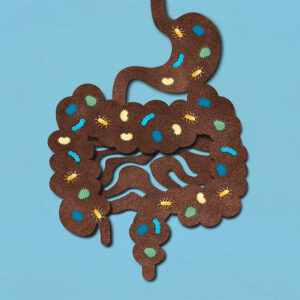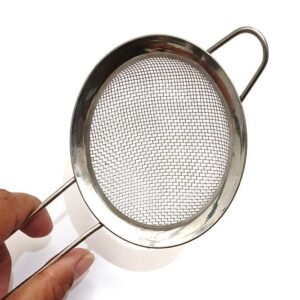
Weekend Sleeping Patterns Contribute to Obesity, Heart Disease, and Diabetes
- New study shows Monday mornings may be destroying your health.
- Do you suffer from social jet lag?
- Want better sleep hygiene? Here are four easy tips to get started.
Dear Reader,
6:31 a.m.: Cool, I’ve got 15 minutes.
7:01 a.m.: Yikes! I better get up.
7:03 a.m.: For real this time. Two feet on the floor — it’s not that hard.
7:11 a.m.: Wait… It’s Saturday.
10:14 a.m.: Ahhhhhh (stretch), what a beautiful morning. Too bad I missed most of it.
This my thought pattern every weekend morning.
I always wake up a few times in a panic, usually trying to gauge if I have enough time to do a little yoga, walk my dogs, shower, pack my lunch, and make my way to the office before 9 a.m.
And then I remember its Saturday.
Glorious Saturday.
I float right back to sleep for another couple of hours — sometimes three if it’s a dreary morning.
I know. I know. An adult (and health writer) is not supposed to have the sleeping patterns of a teenager.
But like most folks, I have long weekdays — usually 18 jam packed hours a day of working, exercising, socializing, cleaning, cooking, household business, and miscellaneous life stuff.
When I get the chance to sneak in a few extra hours of sleep a couple mornings a week, I always take it.
However, my body pays the price for it.
I stay up way past my usual bed time on Saturday night. Then I sleep away Sunday morning and, stay up way too late on Sunday night.
As you probably have already figured, this makes for awful Monday mornings.
But grumpy Mondays aren’t the worst of my problems.
My ever-fluctuating sleeping pattern also makes for some very serious health consequences.
We will dig deeper into those in just a moment.
While night shift work is a known offender of good health, “weekend sleep” and other sleep disturbances may be just a detrimental.
There are ways to help reduce these negative effects. I’ll share a few in a bit.
First, let’s sort out what irregular sleep patterns are doing to our health.
Chronotypes, Social Jet Lag, and Bad Health
Biological timing preferences for sleep and social activities can be very different in individuals. Chronotypes is the term used for these preferred sleep and social times.
Our chronotypes are governed by our circadian rhythm (our biological patterns for a 24-hour period) and are influenced by genetic and environmental factors.
Chronotypes can vary between early to late wake-up times. Any of these chronotypes can be functional. It’s social and professional scheduling that interferes with our sleep.
A difference between social and biological time can create a sleep debt or “social jet lag”.
Dr. Till Roenneberg, an expert on chronotypes and social jet lag, further explains this concept in an article in Chronobiology International:
“Societal determination of work times, and sometimes also of free times, interferes with individual sleep preferences. In late chronotypes, the constraints of early work schedules lead to an increasing sleep debt over the week that is compensated for on weekends. The fact that many people in our society shift their sleep and activity times several hours between the work week and the weekend (or other free days) is comparable to jetlag.” 1
Think about how many times a week you discount or rearrange your sleeping schedule due to social obligations.
I quickly added up six hours of sleep debt in just the last week, all due to activities scheduled outside of my chronotype.
Sleep debt is never repaid. While we might feel a bit more refreshed after a weekend sleep in, we actually may have done more damage to our bodies.
In fact, a new study by the Journal of Clinical Endocrinology and Metabolism has linked disrupted sleep patterns to higher insulin resistance, lower HDL (good) cholesterol, higher body mass index, and higher triglycerides. 2
Patricia M. Wong, a graduate student of the University of Pittsburgh in Pittsburgh and a contributor the above mentioned study, reports:
“Other researchers have found that social jet lag relates to obesity and some indicators of cardiovascular function. However, this is the first study to extend upon that work and show that even among healthy, working adults who experience a less extreme range of mismatches in their sleep schedule, social jet lag can contribute to metabolic problems. These metabolic changes can contribute to the development of obesity, diabetes, and cardiovascular disease.”3
With heart disease and diabetes steadily adding to our mortality rate here in America, this is alarming news.
Something as routine as sleeping in all weekend and waking up at your normal time on Monday could be derailing your health.
But it doesn’t have to be this way. There are things you can do to establish a healthy, consistent, and restful sleeping cycle.
While our obligations are rarely congruent with our chronotypes, and we may not be able to control all circadian disruptions — we can make efforts to practice better sleep habits.
Reclaim Your Health With Better Sleep
Practicing good sleep habits, also called sleep hygiene, is not an easy feat. This can be particularly challenging when you have a family, a career, friends, pets, and other responsibilities.
But your health depends on it.
Here are a few tips to get you started:
- Set the stage for sleep: Environment is key factor of healthy sleep. Make sure to keep your sleeping space dark, clutter-free, electronics-free, and cool. Having a tranquil, organized, and distraction-free environment will relax you and promote better sleep. Keeping electronics out of the bedroom also keeps work, friends, family, and the Internet from robbing your zzz’s. Like most folks, I use a cell phone alarm to wake me up. However, I now put my phone on silent, plug it in, and lay it face down across the room from my bed. Putting your phone face down will keep the light generated by notifications from disrupting you. Also, sleep.org recommends maintaining a room temperature between 60-67 degrees Fahrenheit. This range seems to help encourage the body to fall and stay asleep.4
- Define your bed time: Consistently going to bed at a specific time will help you build your sleep routine. Setting an alarm for an hour before your chosen bed time is helpful way to start. This alarm will remind you it’s time to start winding down, take your eyes off of electronic screens, and begin your bedtime rituals. I did this for about two months when I was studying for a certification exam and it helped me stay on track with getting to bed at my designated time.
- You snooze, you lose: Using the snooze button is making your morning worse. While you might think you are getting a few extra minutes of sleep, you’re actually resetting your brain’s sleep cycle. When the alarm goes off again, you have likely entered a deeper sleep cycle. Waking from this cycle can make you groggier than you were when you woke up from the first alarm.5 I was once guilty of setting my alarm ambitiously early and then snoozing through an hour or so. Now, I set my alarm for a realistic time and feel better in the mornings. Once you figure out what your optimal wake up time is, make sure to rise at this time seven days a week. As hard as that maybe on a weekend or off day, your body will thank you later on. I am going to make this my New Year’s resolution. I will report back in January on how it’s going.
- Try a supplement: With so much going on in your day, it’s sometimes hard to shut off your brain at bed time. A natural supplement maybe a good choice to help aid you in your quest for restorative sleep. Valerian root is a helpful choice for a restless night. Studies have shown valerian root can help you fall asleep quicker and feel like you have experienced better quality sleep.6
Do you have any sleep hacks you want to share? Write me! nmoore@lfb.org
Live well,

Natalie Moore
Managing editor, Living Well Daily
Sources
[1] SOCIAL JETLAG: MISALIGNMENT OF BIOLOGICAL AND SOCIAL TIME
[2] Social Jetlag, Chronotype, and Cardiometabolic Risk
[3] Social Jet Lag May Raise Diabetes, Heart Disease Risk
[4] The Ideal Temperature for Sleep
[5] Science Explains Why You Should Stop Hitting the Snooze Button
[6] Valerian
Written By Natalie Moore
Natalie Moore is a dedicated health researcher with a passion for finding healthy, natural, and science-based solutions. After a decade of direct healthcare experience in western and natural medicine, she was involved in public health research before joining Living Well Daily.
View More Free Articles
Mailbag: When to Worry About Memory Lapses
“I’ve been experiencing some memory lapses recently, and I’m worried it might be early signs of Alzheimer’s disease. My mother also had it. What symptoms should I look out for?” – Ann Hi Ann, It’s important to recognize that some degree of memory loss is a normal part of life. Our brains constantly process and...
The Unforeseen Link Between Your Gut and Your Waistline
As the weather warms up and summer approaches, many of us start thinking about shedding those extra pounds… We dust off our gym memberships, stock up on salad greens, and vow to finally fit into those shorts from last year. But what if I told you that the key to achieving a healthy weight might...
Defy Aging with the Sunshine Vitamin
If there’s one thing you absolutely must do for your health, it’s to maintain healthy vitamin D levels. I can’t stress this enough. And if you think vitamin D is only good for beefing up your bones, think again. Because while vitamin D is crucial for maintaining healthy bones, recent research has revealed that this...
Detox Your Drinking Water with a Microplastics Purge
We’re surrounded by plastics. They’re everywhere, from the obvious plastic shampoo bottle to the not-so-obvious clothing on our backs. From the moment we get up in the morning until we slide beneath the sheets at night, we are in contact with them. Heck, some bedsheets contain plastic fibers, so you may ALSO be exposed while...
The TRUTH About Word Finding Troubles
Picture this. You’re having a lively conversation with a friend, and suddenly, find yourself grasping for a word that’s just out of reach. You KNOW it’s in there somewhere, hiding in the recesses of your mind. But no matter how hard you try, you can’t seem to pin it down. When you have trouble word...
FDA Finally Admits “BANNED” Soda Ingredient is Unsafe
I’m not a soda fan for MANY reasons. I wrote an entire book on the dangers of sugar, for example. And research links soda drinking to fatty liver disease, heart disease, high blood pressure, diabetes, obesity, and Alzheimer’s. And the diet stuff is no better. Fake-sugar-filled diet sodas cause “metabolic confusion,” and artificial sweeteners are...
Discover WHY We Accidentally Overeat (and How to Stop)
Picture this… You finish eating a nice meal feeling just fine. But then, 20 minutes later, you’re groaning and clutching your belly because you feel uncomfortably stuffed. If this sounds familiar, you’re in good company. Most of us have had this happen. Science reveals why accidental overeating occurs… and what we can do to avoid...
Find Exercise Exhausting and Painful? Try THIS Natural Fix
If you’ve heard it once, you’ve heard it a thousand times: “You need to exercise.” And sure, you know how vital it is to healthy aging. But let’s be honest, sometimes it feels nearly impossible to get moving—especially when you know you’ll be sore for DAYS after. However, hold on to your seat because I’ve...
Mailbag: Unsteady on Your Feet? Now What?
“I’ve been having trouble with my balance lately and have fallen a couple of times. Could this be related to osteoporosis or another underlying cause?” – John Hi John, It’s always concerning when someone experiences balance issues or falls. While osteoporosis can contribute to an increased risk of falling, several other underlying causes should also...
Is There Really a Hidden Benefit to BROCCOLI?
Just when we thought broccoli’s resume couldn’t get any more impressive, new research proves us wrong. The phytonutrients in this tasty veggie can lower inflammation… balance blood sugar… and even boost your memory. And you likely already know of broccoli’s legendary prowess in preventing cancer. Now, a new study reveals that sulforaphane, the potent compound...









